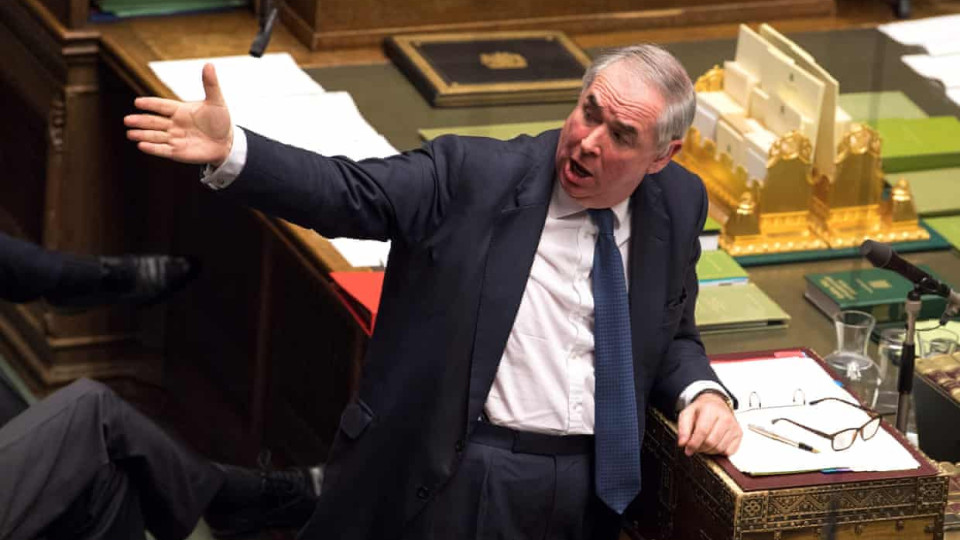

There is a much-disputed legend that when the conquistador Francisco Pizarro first approached the shores of South America, the indigenous peoples were so psychologically overwhelmed by the scale and alien nature of his ships that they saw only inexplicable ripples in the ocean.
Accurate or not, the tale has unhappy resonance in Westminster this week. Far from rising to a historic challenge, the political class seems paralysed by the terrifying proximity of Brexit, taking refuge in the (comparative) trivia of party and factional politics, instead of addressing with clarity and courage the greatest prospective change since the second world war in our institutional, economic and social arrangements.
So when the education minister Nadhim Zahawi objects that going ahead with elections to the European parliament would represent an “existential threat” to the Conservative party, my response is: so what?
Yes, the party system is an important part of the nation’s political fabric. But the idea that the timing of Brexit should be set to suit the apparently limitless neuroses of the Tory tribe suggests, let us say, misplaced priorities. The preservation of food supply chains, availability of lifesaving medication, planned deployment of troops in civilian areas: these seem to me considerably more pressing questions than the fate of the blue rosette.
And then there are the 25 Labour MPs who have written to Jeremy Corbyncomplaining that a fresh referendum would “reduce our chances of winning a general election”. Again, so what?
For an increasing number of MPs, it is simply too much. The parliamentary tearooms resemble the convalescent homes where the shell-shocked soldiers of the first world war sought solace and recovery. As one cabinet minister put it to me: “I seem to be making lots of hot drinks and doing my best to soothe people.”
Meanwhile, the brute beast of real-life Brexit drags itself implacably towards this wretched scene. Its next stop will be the EU summit in Brussels on Wednesday, at which, according to her current plans, the prime minister will seek an extension of article 50 to 30 June.
This plan is vintage May: splitting the difference to no real purpose. It would save the UK from its present default fate, which is to leave the EU on Friday.
But postponing our departure until the end of June is really no more than a stay of execution. The endless indicative votes, the triple-rejection of the prime minister’s deal, the faltering cross-party negotiations: all make clear the futility of her strategy.
Incrementalism is not going to change the political weather, or nudge her version of Brexit over the line. Horrible as it is to admit, we need more time, and plenty of it, to resolve this tortured conundrum.
Indeed, this is the week in which the most spectacular irony of the whole process will become clear: namely, that, three years after the 2016 referendum, the UK is now completely at the mercy of the EU. All those who talked of national emancipation, a great day of liberty, and the British lion’s roar can – as Boris Johnson might put it – “go whistle”. We creep like a bedraggled alley cat towards Brussels, hoping that our 27 partners will take pity on us.
About this much, May is perfectly correct: there is, as she declared in a statement on Saturday night, an appreciable chance that Brexit might “slip through our fingers”. For those of us who would like to see the UK remain part of the EU, this is good news. But the prime minister believes – with a fixity of purpose that is not to be underestimated – in her absolute duty to implement the result of the referendum.
It is true that she reached out to Corbyn in desperation. But she did so fully aware that the Labour leader shares her desire to get Brexit done and dusted, under a Tory government. The last thing that he wants to inherit from May is this particular giga-shambles. Hence the stumbling efforts of the Labour and Tory negotiators to find a constitutional construct that can be presented to their respective parties as permanent membership of the customs union or as precisely the opposite. Not surprisingly, they have yet to lasso this particular unicorn.
It is amazing to me that the political class, and especially those who favour leave, are not more ashamed. Geoffrey Cox, the attorney general, is often lionised as a great intellectual, in the way that Englishmen with booming voices, decent suits and no-nonsense characters often are.
But he rather let the cat out of the bag last week when he admitted: “I just feel we have underestimated [Brexit’s] complexity. We are unpicking 45 years of in-depth integration. This needed to be done with very great care, in a phased and graduated way.”
No, Mr Cox, you underestimated its complexity. A modestly bright 10-year-old, given a quick briefing on the history of Britain’s entanglement with the EU, would spot that getting out might be a bit tricky. But people like the attorney general believe that “tricky” is for ordinary folk. Brio, gumption, expertise, connections, probably (whisper it) the right school and university: these are meant to be the tools that reliably conquer complexity.
Or not, as it turns out. Cox’s bafflement is the sudden, pained recognition of an entire establishment class that it takes more than willpower to get your way. To this extent, Brexit has been ruthlessly democratising.
And it is in this traumatised state that the body politic begins the week, as the prime minister heads for Brussels as supplicant-in-chief for a nation completely unsure of where it is heading. Which prompts me to ask all you Brexiteers: that business about “taking back control”. How’s that working out for you so far?











Leave a comment